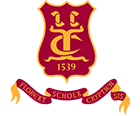“May your choices reflect your hopes, not your fears” Nelson Mandela
Year 9 is an exciting time for pupils but is also a year of difficult decisions. We want to assure you that we will be with you every step of the journey in choosing these GCSE options, supporting you and your child to make the best decision for them as individuals. The process has been designed to provide you and your child with information gradually so nobody feels overwhelmed, whilst still ensuring you have all the information you require to make an informed decision.

Year 9 Options Pathways
GCSE Options Information Booklet 2024
Y9 Careers Talk
Y9 Options Evening Presentation
Click Here for Subject Specific Information
What subjects do I have to take?
These are the compulsory subjects:
English Literature and English Language
Maths
Science - either separate sciences (often referred to as triple science as there are three of them and they count as 3 GCSEs) or Combined Science (which counts as 2 GCSEs)
Geography or History
What are the option subjects?
Humanities subjects – Geography, History, Philosophy & Ethics
Modern Foreign Languages – French, German, Spanish
Arts Subjects – Art Craft & Design, Design & Technology, Food Preparation & Nutrition, Music, Drama.
Social Sciences – Business Studies
Other – Sports studies (Physical Education), Computer Science
When do I have to submit my options?
The deadline to submit your options form is Tuesday 19th March 2024
How many GCSEs will I get?
All students take 9 GCSEs. If you are in the top sets for maths you will also be offered the opportunity to take ‘Further Maths’ as a course. This is particularly useful if you are considering an A-level in maths.
Do I have to take a MFL (language) subject?
No you don’t have to. However, language subjects are considered ‘facilitating’ subjects. This means they will help you get into university courses. Taking a language will ensure you have a broad range of subjects and increases your understanding of another culture.
Why should I take a language? Why do people think languages are important?
Taking a language for GCSE will enable you to become a more confident, resourceful and a resilient learner who is comfortable at improvisation and thinking on your feet. It will also hone your ability to quickly process large amounts of complex information and enhance your literacy and problem solving abilities – soft skills which are in huge demand from employers and higher education establishments. This is one of the reasons why MFL forms part of the rigorous Ebacc group of subjects.
Learning a language for GCSE will provide you with a great asset for life, whether used for recreational and practical purposes or within a future career. In fact many Crypt students often take a language at GCSE and A Level to complement other career-specific subjects. That’s because learning a language will also boost your future earning power and put you in a select group of people in a competitive higher education and employment market – in fact only 30% of the UK population can read and write in a language other than their own!
How can I find out if my options will allow me to take the subjects I want at A-level?
Take a look at our Year 12 Information Booklet www.cryptschool.org/admissions/prospectus-. This will tell you what the entry requirements are for each A-level Subject.
Unifrog is also a great website that the students all have been given a login for during Citizenship lessons. Use Unifrog to search to look at potential University courses, Apprenticeship and careers linked to each subject. www.unifrog.org
If a student does not have a log in for Unifrog please email Mr Germaine- [email protected]
What is meant by triple science?
This is the 3 separate sciences – biology, chemistry and physics. Each is worth 1 GCSE.
The alternative to taking separate science, is taking the Combined Science course. This covers all three science subjects (biology, chemistry and physics) in slightly less depth; it is worth 2 GCSEs.
If I take combined science, can I still take an A-level in Biology/Physics/Chemistry?
Yes you can. We often take students from The Crypt or from other schools into A-level with Combined Science. That said, if you do want to take an A-level in a science, we strongly recommend you take the separate sciences. Most of the more challenging content is covered in the additional material in the separate sciences – this will place you in a better position to face the challenges of an A-level in science.
What is the chance of me getting all my options?
Relatively high. We have managed to fulfil virtually all options for the last 3+ years. However, we can’t (and don’t) guarantee we can do this. If you choose more common combinations (where there is more than 1 class) it increases the chances of us fulfilling your options. If you choose unusual combinations, then this becomes more challenging. Certain subjects only sit in one option block – if you chose several subjects that only sit in one option block (e.g. Art, Drama and Religious Studies) then we are less likely to be able to fulfil your choices.
Do I have to give a ‘reserve’ subject?
Yes. If we can’t meet your first choices of your options, then we will do our best to offer you your 1st reserve subject. We will be in touch with you if we can not meet your options so you will be aware of this.
When will I know when I have been successful in my options?
We will communicate with you as soon as we have determined whether we can fulfil all the options or not. This is usually sometime in April.
If we can not offer you your options, Ms Glock will be in contact with you and your parents to discuss your options further.
Can I change my options once I’ve submitted my form?
Potentially. It’s important to us that you take a subject you will enjoy and want to study. If a subject class is full then we will not be able to accommodate the change, however if there is space then we will allow you to change the subject. Certain combinations of subjects may not be possible – so it’s always best to put the options you really want to take.
Please speak to us as soon as you have decided that you want to change a subject. Changes will only be accepted with your parents’ permission.
How can I make sure I’m in the same sets as my friends?
You can’t. You need to make decisions about your future based on what’s most important for you. Your friends also need to make decisions that are best for them. You and your friends’ decisions may or may not align.
Can I change my mind in September after the start of term?
Changes after the term has started are not ideal – so wherever possible, please contact us before the start of term. If you change your mind over the holidays then get in touch with Ms Glock ([email protected]). You may not get a response until we’re all in for exam results days – however we will be in touch before the start of the academic year and we can usually make changes before the first day of term.
If you have started a subject, and you then decide you want to move, you will need to discuss this with your Head of Year, and the teachers (both of the subject you are leaving, and the subject you want to join) before we will agree to move your subject. You will also need your parent/carer to email either your Head of Year or Ms Glock (Deputy Head Academic) to confirm that they are also happy for you to change your subjects.
You will only be allowed to change subjects in the first 4 weeks of term. After this date you will no longer be allowed to change subjects as too much content would have been covered.
Can I take more than 1 humanities subject?
Yes. We offer three humanities subjects – history, geography and Religious Studies. If you wanted to, you could take all of three of these, although we would not recommend this. You should aim to have a broad range of options – this will allow you to keep your options open as you approach A-levels.
Are there any combinations that are not permitted?
There are no specific combinations that are not permitted, however we strongly recommend that you take a maximum of two subjects with coursework, due to the time consuming nature of the coursework.
Do any subjects have entry requirements?
Yes…in order to study Computer Science you will need to achieve a gold (or grade 3) in Entry Level Computer Science that you take in Year 9.
What if my parents and I disagree over my options?
It is not uncommon for parents/carers and their children to disagree over options. The key to resolving disagreements is to listen to each other. You both need to think carefully about why you feel one subject is more important than another – and then you need to listen to why your child/parent disagrees with you. You both probably have very good reasons for your views. Don’t rush the decisions – you have plenty of time to make them.
You will need to come to a decision in the end. Remember to refer to unifrog (www.unifrog.org) – this will give you career options and this might help direct some of your discussions.
What is the English Baccalaureate?
The English Baccalaureate (EBacc) is an accountability measure in England. It measures the proportion of children who secure a grade 5 or above in English, Maths, Science, a humanity and language GCSE. Arts subjects are not included.
The EBacc is made up of the subjects which are considered essential to many degrees and open up lots of doors. Research shows that a pupil’s socio-economic background impacts the subjects they choose at GCSE, and that this determines their opportunities beyond school.
A study by the UCL Institute of Education shows that studying subjects included in the EBacc provides students with greater opportunities in further education and increases the likelihood that a pupil will stay on in full-time education. Sutton Trust research reveals that studying the EBacc can help improve a young person’s performance in English and maths.
The government’s ambition was to see 75% of pupils studying the EBacc subject combination at GCSE by 2022, and 90% by 2025.
How can I get more careers advice?
We have a careers officer – ask your form tutor to arrange for you to have a careers appointment. They will talk to you about what you are interested in and try to suggest certain career options.
Use Unifrog (www.unifrog.org) – you can access this from the school intranet. There is a huge amount of information on here about various career pathways, including universities and apprenticeships. There are various questionnaires you can do that will help you identify various careers options.
Speak to your subject teachers – they will know a huge amount about careers in their own subject areas. Talk to them about what interests you.
Visit UCAS website (www.ucas.com)
Speak to your parents, their friends and other family members – they will all have ideas and experience to help you. Listen. Think. Don’t rush.












